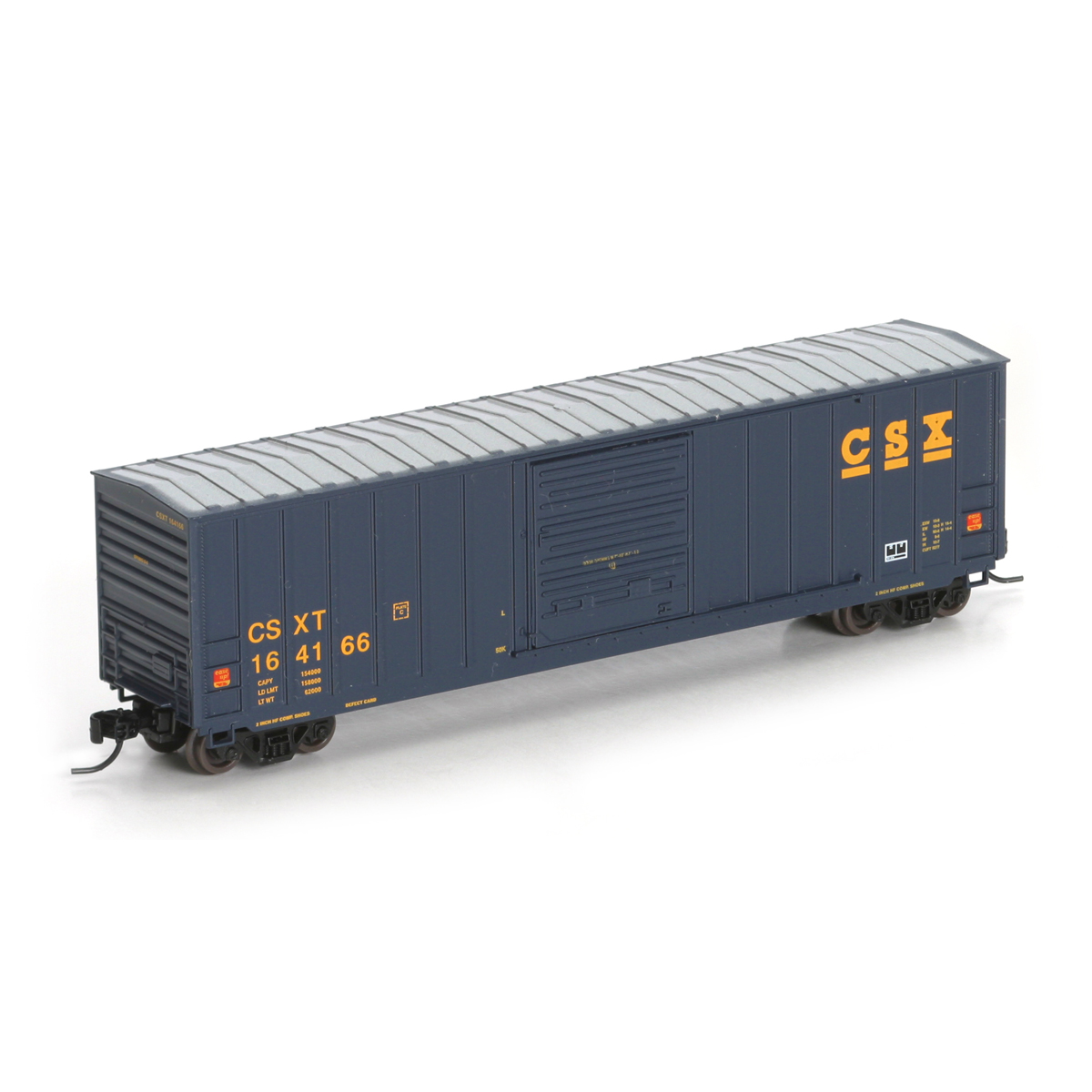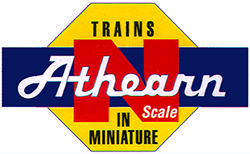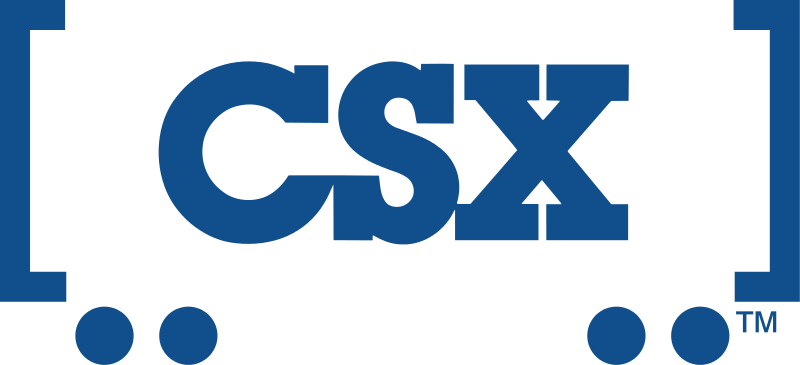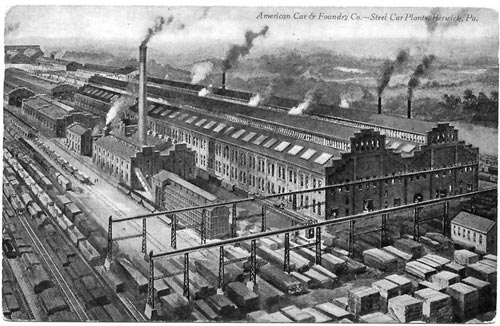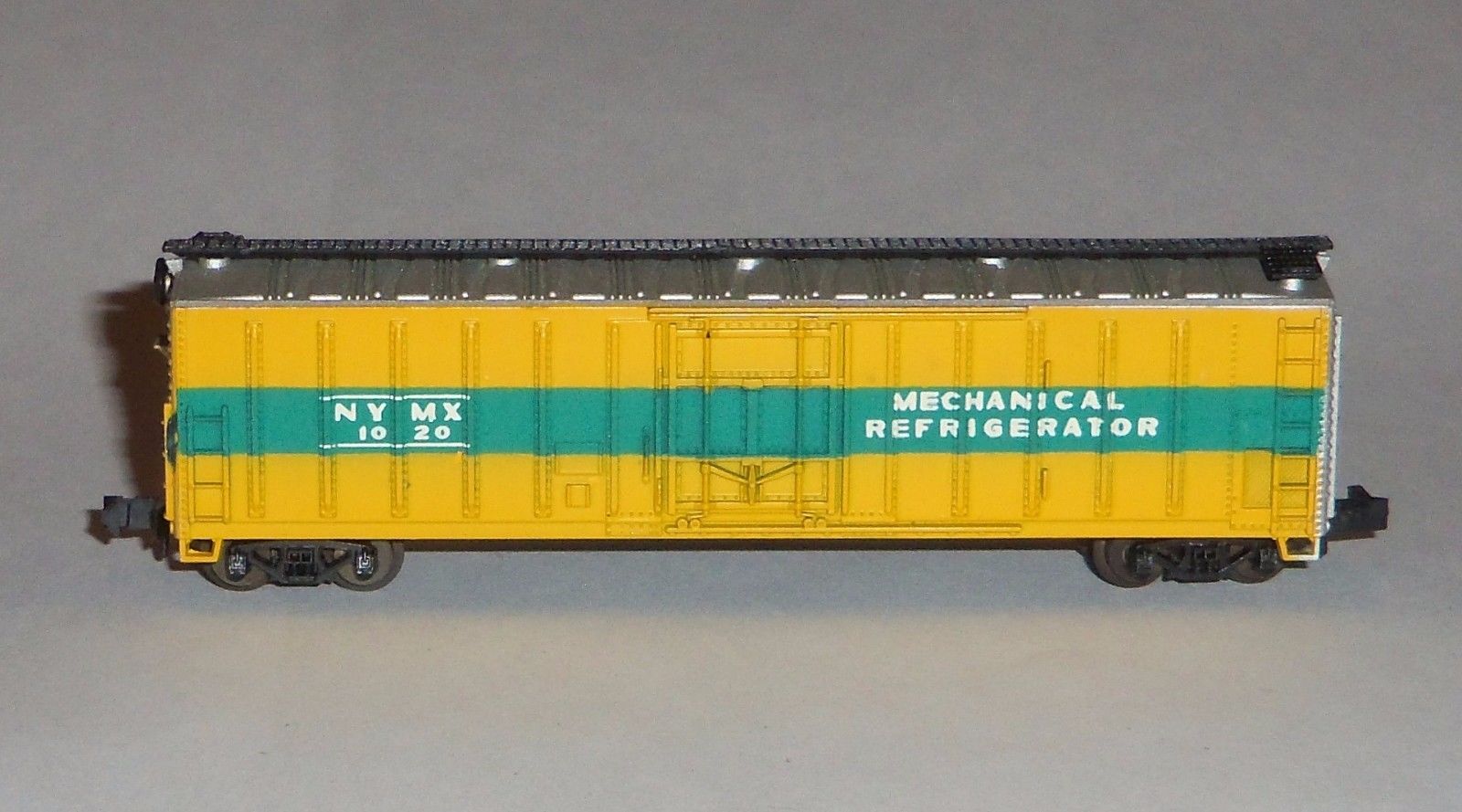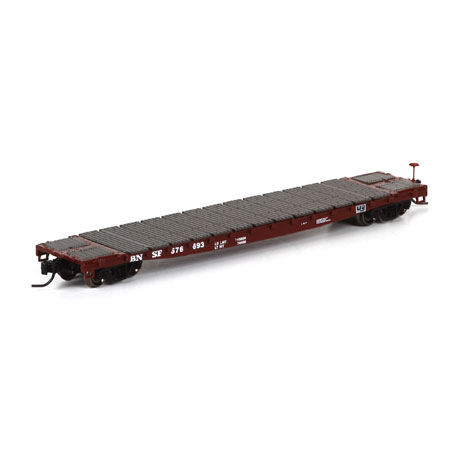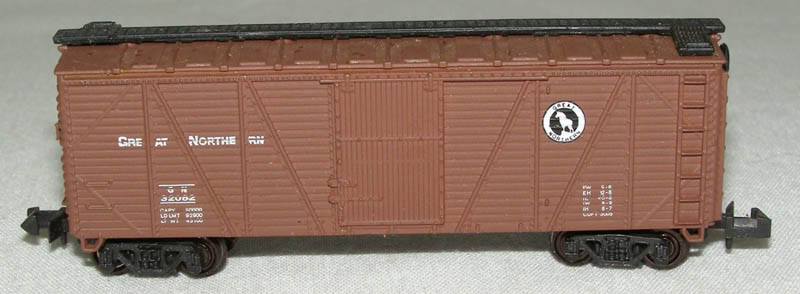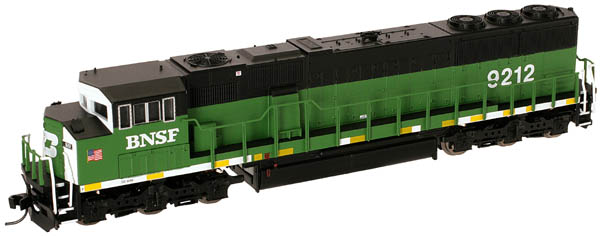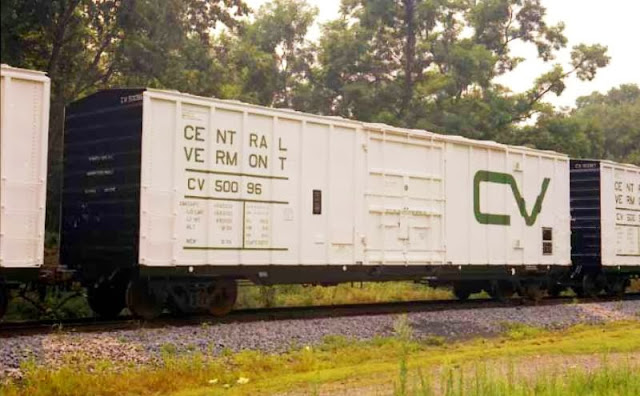Specific Item Information: N RTR 50 foot Berwick Box, CSX #164166
Model Information: Boxcar, 50 Foot, Youngstown Single Sliding Door, Rib Side, Without Roofwalk, modeled after a prototype produced by BFF (Berwick Forge and Fabricating). MDC has released this model both in 'kit' and RTR (Read-to-Run) packaging. None of the features on the model actually match the Berwick prototype. Athearn acquired this tooling from MDC in 2004, and has since re-released it more than once. Athearn markets BFF models with both door styles (Pickens and Youngstown) as 'Berwick Boxcars'. The Athearn models feature magnetically operated couplers and are always RTR.
Prototype History: The US government came up with a scheme to create an artificial incentive for railroads to buy new boxcars. If a railroad increased its boxcar fleet it was allowed to charge other railroads (not the customer) more for their daily use. (That's Per Diem). As an example, if the Crab Orchard and Egyptian acquired a fleet of 500 boxcars (up from zero) , and got them loaded on the ICG, it could charge the ICG for their use at an "Incentive Per Piem" rate that more than paid the CO&G's cost of ownership. So new boxcars got pumped into the system while old boxcars sat idle.
To cater to this demand, Berwick introduced its 50-foot boxcar in 1972 and sold the exterior-post car to more than 35 railroads. Though Berwick stopped production in 1982, the boxcars are still commonly seen throughout North America.
To cater to this demand, Berwick introduced its 50-foot boxcar in 1972 and sold the exterior-post car to more than 35 railroads. Though Berwick stopped production in 1982, the boxcars are still commonly seen throughout North America.
Road Name History: CSX Transportation (reporting mark CSXT) is a Class I railroad in the United States. The main subsidiary of the CSX Corporation, the railroad is headquartered in Jacksonville, Florida, and owns about 21,000 route miles (34,000 km). CSX operates one of the three Class I railroads serving most of the East Coast, the other two being the Norfolk Southern Railway (NS) and Canadian Pacific Railway. It also serves the Canadian provinces of Ontario and Quebec. Together CSX and Norfolk Southern Railway have a duopoly over all east-west freight rail traffic east of the Mississippi River. As of October 1, 2014 CSX's total public stock value was slightly over $32 billion.
CSX Transportation was formed on November 1, 1980, by combining the railroads of the former Chessie System with Seaboard Coast Line Industries, and finally with the Seaboard System Railroad in 1986. The originator of the Seaboard System was the former Seaboard Air Line Railroad, which previously merged with the Atlantic Coast Line Railroad in 1967, and later with the Louisville & Nashville Railroad, as well as several smaller subsidiaries such as the Clinchfield Railroad, Atlanta & West Point Railroad, Monon Railroad and the Georgia Railroad. The origin of the Chessie System was the former Chesapeake & Ohio Railway, which had merged with the Baltimore & Ohio Railroad, and the Western Maryland Railway.
Read more on Wikipedia.
CSX Transportation was formed on November 1, 1980, by combining the railroads of the former Chessie System with Seaboard Coast Line Industries, and finally with the Seaboard System Railroad in 1986. The originator of the Seaboard System was the former Seaboard Air Line Railroad, which previously merged with the Atlantic Coast Line Railroad in 1967, and later with the Louisville & Nashville Railroad, as well as several smaller subsidiaries such as the Clinchfield Railroad, Atlanta & West Point Railroad, Monon Railroad and the Georgia Railroad. The origin of the Chessie System was the former Chesapeake & Ohio Railway, which had merged with the Baltimore & Ohio Railroad, and the Western Maryland Railway.
Read more on Wikipedia.
Brand/Importer Information: Athearn's history began in 1938, when its founder-to-be, Irvin Athearn, started an elaborate O scale layout in his mother's house. After placing an ad selling the layout, and receiving much response to it, Irv decided that selling model railroads would be a good living. He sold train products out of his mother's house through most of the 1940s. After becoming a full-time retailer in 1946, Irv opened a separate facility in Hawthorne, California in 1948, and that same year he branched into HO scale models for the first time.
Athearn acquired the Globe Models product line and improved upon it, introducing a comprehensive array of locomotive, passenger and freight car models. Improvements included all-wheel drive and electrical contact. One innovation was the "Hi-Fi" drive mechanism, employing small rubber bands to transfer motion from the motor spindle to the axles. Another was the double-ended ring magnet motor, which permitted easy connection to all-wheel-drive assemblies. Athearn was also able to incorporate flywheels into double-ended drives.
The company produced a model of the Boston & Maine P4 class Pacific steam locomotive which incorporated a cast zinc alloy base and thermoplastic resin superstructure. It had a worm drive and all power pickup was through the bipolar trucks that carried the tender. This item was discontinued after the Wilson motor was no longer available, and was not redesigned for a more technologically advanced motor.
Athearn's car fleet included shorter-than-scale interpretations of passenger cars of Southern Pacific and Atchison, Topeka & Santa Fe Railroad prototypes. The company also offered a variety of scale-length freight cars with sprung and equalized trucks. The cars could be obtained in simple kit form, or ready-to-run in windowed display boxes. The comprehensive scope of the product line contributed to the popularity of HO as a model railroad scale, due to the ready availability of items and their low cost.
Irv Athearn died in 1991. New owners took control in 1994, but continued to follow Athearn's commitment to high-quality products at reasonable prices. Athearn was bought in 2004 by Horizon Hobby. Athearn was then moved from its facility in Compton to a new facility in Carson, California. In mid-2009, all remaining US production was moved to China and warehousing moved to parent Horizon Hobby. Sales and product development was relocated to a smaller facility in Long Beach, California.
Read more on Wikipedia and Athearn website.
Athearn acquired the Globe Models product line and improved upon it, introducing a comprehensive array of locomotive, passenger and freight car models. Improvements included all-wheel drive and electrical contact. One innovation was the "Hi-Fi" drive mechanism, employing small rubber bands to transfer motion from the motor spindle to the axles. Another was the double-ended ring magnet motor, which permitted easy connection to all-wheel-drive assemblies. Athearn was also able to incorporate flywheels into double-ended drives.
The company produced a model of the Boston & Maine P4 class Pacific steam locomotive which incorporated a cast zinc alloy base and thermoplastic resin superstructure. It had a worm drive and all power pickup was through the bipolar trucks that carried the tender. This item was discontinued after the Wilson motor was no longer available, and was not redesigned for a more technologically advanced motor.
Athearn's car fleet included shorter-than-scale interpretations of passenger cars of Southern Pacific and Atchison, Topeka & Santa Fe Railroad prototypes. The company also offered a variety of scale-length freight cars with sprung and equalized trucks. The cars could be obtained in simple kit form, or ready-to-run in windowed display boxes. The comprehensive scope of the product line contributed to the popularity of HO as a model railroad scale, due to the ready availability of items and their low cost.
Irv Athearn died in 1991. New owners took control in 1994, but continued to follow Athearn's commitment to high-quality products at reasonable prices. Athearn was bought in 2004 by Horizon Hobby. Athearn was then moved from its facility in Compton to a new facility in Carson, California. In mid-2009, all remaining US production was moved to China and warehousing moved to parent Horizon Hobby. Sales and product development was relocated to a smaller facility in Long Beach, California.
Read more on Wikipedia and Athearn website.
Item created by: George on 2016-09-16 15:09:02. Last edited by Lethe on 2020-06-01 00:00:00
If you see errors or missing data in this entry, please feel free to log in and edit it. Anyone with a Gmail account can log in instantly.
If you see errors or missing data in this entry, please feel free to log in and edit it. Anyone with a Gmail account can log in instantly.


